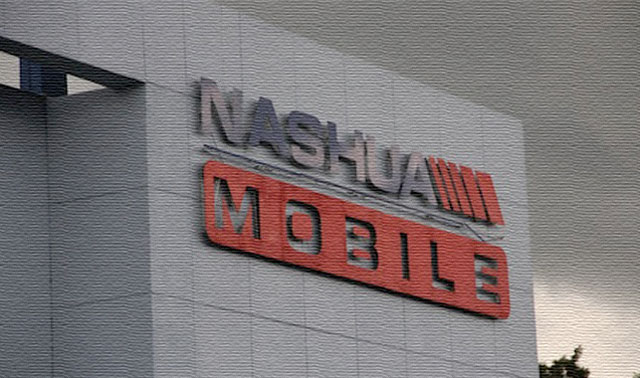 In the end, as we know, Nashua Mobile blinked first. The announcement 18 months ago that it would sell the subscriber bases of its mobile service provider business caught much of the market unawares.
In the end, as we know, Nashua Mobile blinked first. The announcement 18 months ago that it would sell the subscriber bases of its mobile service provider business caught much of the market unawares.
But those close to the mobile sector weren’t surprised. After communications regulator Icasa’s rapid cuts in mobile termination rates (interconnect fees) — the amounts operators pay each other to connect calls to their rivals’ networks — the margins simply weren’t that juicy anymore.
In fact, under-pressure operators had cut incentives to the bone. Subscriber bases had flat-lined; the most profitable contract subscribers had likely left. And with the tariff declines came the inevitable declines in average revenue per user. There were plenty reasons not to be in the service provider business.
Immediately following Reunert’s announcement about Nashua Mobile in April 2014, the elephant in the room was the fate of the last remaining mobile service provider, Altech Autopage.
At the time, Altron insisted it would stay in the game. CEO Robbie Venter told TechCentral that it had “no intention of following Reunert’s lead, at least not in the immediate future”. In its 2014 annual report, Venter said the business “performed well in an industry that is undergoing change, and will continue to evolve and diversify away from a purely GSM-based business to a converged services business”.
The problem is it had tried all manner of cross-selling and up-selling of services to its mobile subscriber base for years. Niche Internet service provider Technology Concepts was ostensibly bought to hitch onto a data bandwagon. At one point there was a partnership with Neotel. None of this really worked.
And the problem with these service provider businesses (both of them) is that they didn’t play to their strengths. There are only two obvious ones: service and their independence.
Service, largely, was a disaster. No matter what PowerPoint presentations promised about the fact that these service providers were capable of being “closer” to customers, the reality was different. Stores weren’t particularly pleasant (I had contracts with both at one point in time). There’s a structural problem inherent in the fact that they are a service provider. Any request turned into a two-step process (at least). You would have to log a change with your service provider who would then in turn log these with the network. Trivial things like activating a faster data service on a Sim (remember when we had to do that?) became this labyrinth of things that could — and would — go wrong.
Neither Autopage nor Nashua Mobile ever really leveraged their independence properly. Remember, these were service providers sitting between all (then) three networks. In theory, wouldn’t they be perfectly placed to ensure you’re on the best contract with the best operator?

Fantastic theory. Invisible in practice. They were incentivised by operators to minimise churn (so they couldn’t exactly actively shift customers off one operator to another). Any new subscribers were channelled to whichever operator (and, upstream, the handset-maker) was incentivising most aggressively at that point in time. More recently, as Vodacom and MTN took hatchets to their incentive structures, that became Cell C. But the Cell C base was always dwarfed by the legacy Vodacom and MTN holds.
Did these service providers have a compelling reason to exist? In short, no. But, each had a base of roughly a million lucrative, but “decreasingly-so”, subscribers.
Reunert’s decision looked inspired in hindsight. When it announced the transaction, it said that “after careful consideration, the boards [of Reunert and Nashua Mobile] concluded that it is unlikely that this business would generate acceptable returns”.
This review coincided with the expiry of “the service provider agreement between Nashua Mobile and Vodacom and the expiry of the incentive agreement between MTN and Nashua Mobile under the MTN service provider agreement”.
And, after 12 months of uhming-and-ahing, Altron arrived at the same answer (ironically after new service provider agreements had been negotiated with the operators). A change in leadership at Altron TMT (Altech, effectively) might’ve helped.
On Wednesday, ahead of a sort-of long weekend, Altron released the details of the transactions to the market (along with an otherwise horrifying trading update (or, more accurately, a profit warning).

Altron would sell its bases to the three operators for just less than R1,5bn.
But even that price isn’t guaranteed. The deals are subject to all manner of approvals, and it’s likely (based on the timelines of the Reunert/Nashua Mobile transactions) that they will close in March 2016.
In March 2014, Reunert announced a sale price of R2,3bn for the Vodacom and MTN bases. It got another R91m for the (small) Cell C base, which it bizarrely managed to sell to Altech Autopage.
It didn’t end up fetching R2,4bn for the three transactions by the time the deals actually closed. Six months normally wouldn’t be material, but Reunert told us in its annual report for the year to September 2014 that “anticipated proceeds from the networks are approximately R200m lower than expected in April 2014 due to revenue base erosion”.
Basically, those Arpus continued to decline, probably faster than Reunert or any of its advisers had calculated. This is how quickly the market changed (and deteriorated).
Now, bear in mind that another year has passed between the time that the Nashua Mobile deals officially closed and the Autopage ones were announced. That explains the price difference. By the time, conditions precedent on the Autopage transactions are met, it will have been two years from the original Nashua Mobile wind-down announcement.
We don’t know the exact size (and health) of the Autopage base. The last number we have is “around a million subscribers”. Both Altron and Reunert stopped reporting detailed metrics a few years ago, which somehow happened to coincide with some rather large “changes” in profitability and Arpu.
In April, just ahead of the disposal announcement, Altron said that “the anticipated recovery in the performance of Altech Autopage did not materialise in the second half, as market saturation and price deflation offset cost saving gains”.

Altron then said its “decision to dispose of these subscriber bases [was] based on, among others, the impacts of the ongoing mobile termination rate reductions, as well as continued industry and consumer deflationary pressures”.
In the year to May 2015, “Altech Autopage Group” reported revenue of R5,7bn with Ebitda of R137m (vs R264m in 2014). It also reported (negative) net cash flow for the unit of -R47m in 2015 (and -R84m in 2014). By comparison, in the year to end September 2014, Reunert reported Nashua Mobile revenue of R3,3bn and operating profit of R183,7m (vs R212m in 2013). It seemed far better at cash conversion than Autopage, with net cash flow of R187m in the year (vs R235m in the prior period).
Based on these numbers, Nashua Mobile looked in better health by the time it was sold than Autopage Cellular did in September. And the market has deteriorated further.
I’d be surprised if Altron achieves anything substantially above R1bn of that R1,5bn total sale consideration. Remember, Altron is effectively a forced seller. By not moving first, or a year ago, it’s lost whatever negotiating leverage over the operators that it had.
Can we blame hubris? “Bravery”, perhaps? The leadership confusion at Altron and Altron TMT? A lack of clear strategy? A complete misunderstanding of what was happening in the market?
Would shareholders be better off if Altech Autopage had announced the sale of its base shortly after Nashua Mobile? What if it had blinked first?
That’s the R1bn question.
- Hilton Tarrant works at immedia, specialists in native mobile app and Web development
- This column was first published on Moneyweb and is republished here with permission
- Subscribe to TechCentral’s free daily newsletter

